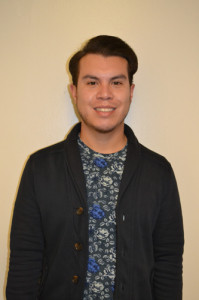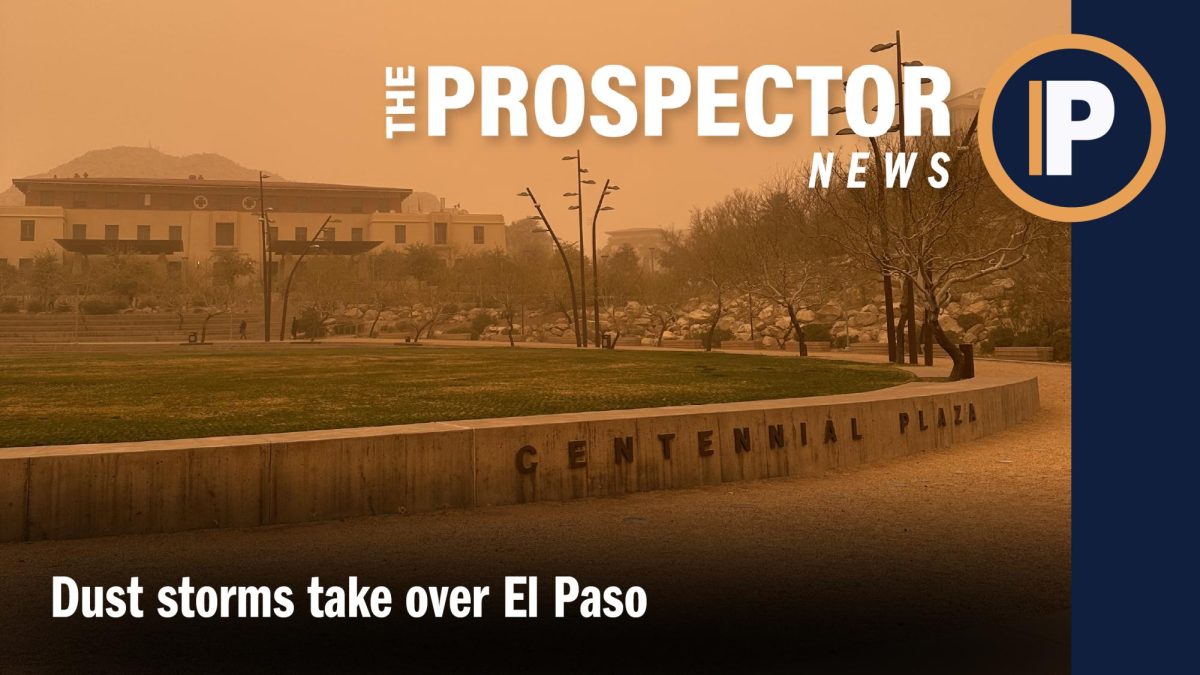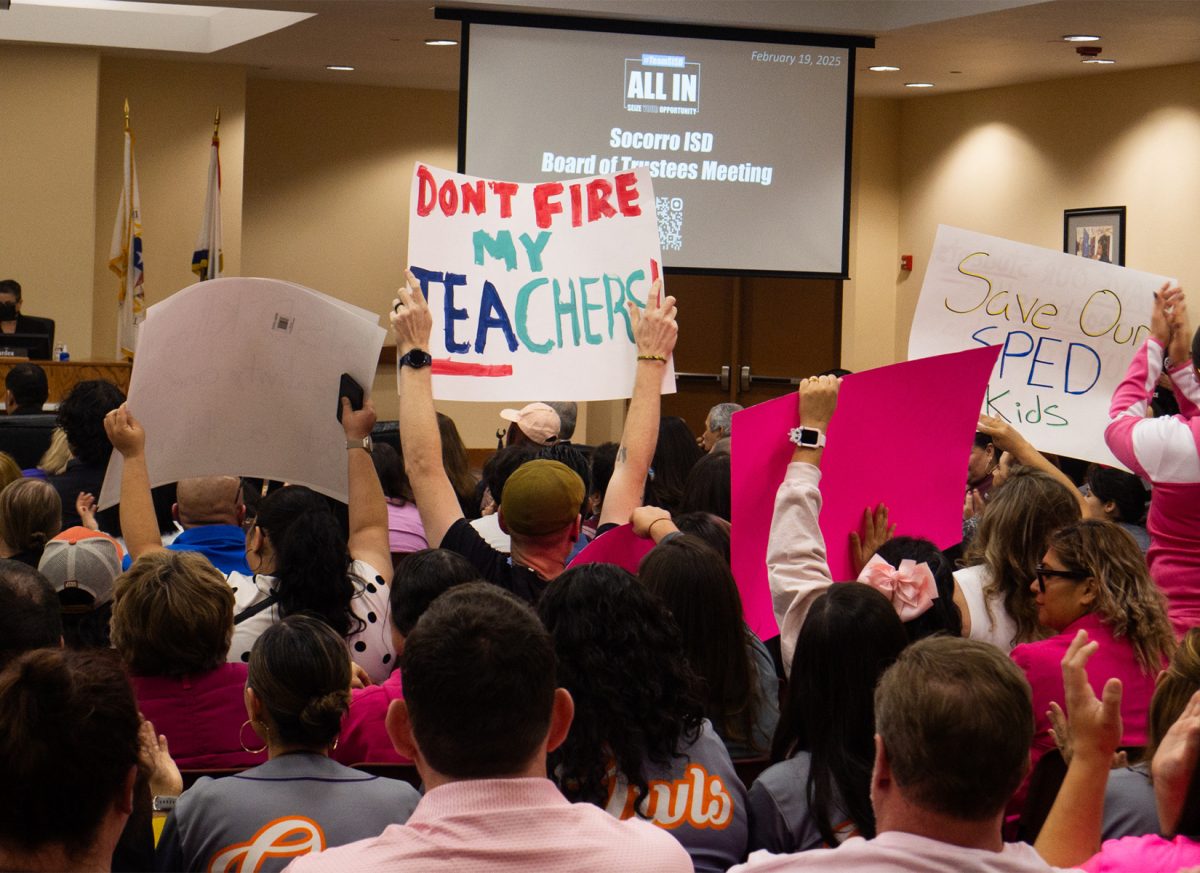A UTEP professor and some of his students have been volunteering at the Annunciation House, putting what they have studied and their social work skills to good use as an increased number of immigrants being sent to El Paso.
This influx has created a dire need for housing for more than 2,000 people at a time. Thousands of undocumented immigrants are being captured along the southern border between Texas and Mexico and have caused immigration officials to fly them to other cities such as El Paso because of over-exceeded capacity at the holding stations. For more than 36 years, the Annunciation House has provided hospitality to undocumented immigrants.
Mark Lusk, professor of social work, has been working closely with immigrant refugees and the Annunciation House for some time. Lusk has provided assistance with refugees and migrants off and on since the sanctuary movement began during the early 1980s. The movement was a response to restrictive and challenging asylum policies that made it difficult for Central Americans to enter the U.S. as refugees.
“I worked in Tucson, where we assisted refugees from Central America who were fleeing the so called dirty wars in that region, where dictators murdered farmers, indigenous people, intellectuals, priests and nuns,” Lusk said. “I have been working with refugees here in El Paso for the past six years. When the Annunciation House put out a call for volunteers, I rallied the students in the social work department.”
Christian Salas, a graduate student in social work, is amongst the
UTEP volunteers.
“I started volunteering with these efforts when an organizational meeting was held by Annunciation House,” Salas said. “As social work students and recent graduates, we volunteered for the area in which we would have the most interaction with the families.”
Salas said that his acquired skills in social work allow him to intervene and assist the immigrants with personal issues they might be facing.
“We mainly contact their family members here in the United States and inform them of what they can do to arrange travel methods for their relatives,” Salas said. “We allow them to speak to each other and that’s when we see the raw emotions pour out at times. We receive travel confirmations from the family and collaborate with the transportation area for a driver to take them to the bus station or the airport.”
Viridiana Sigala, also a graduate student in social work, works closely with the immigrants and said it has been a great experience to help the immigrants in some way.
“I have been fortunate to be a volunteer for Annunciation House for more than five years. However, I have never been able to be part of something this meaningful,” Sigalas said. “This experience has helped me to become more aware of all the issues that my community is facing, to understand that there still a lot to be done for them, to see how our government sometimes doesn’t care. It has helped me become more passionate about my career because I know that someday I will be able to promote equal rights no matter where you’re coming from”.
Lusk and his students said they have seen first hand the traumatizing effect that migrating to the United States has had on the immigrants.
“Refugees have often experienced trauma and criminal victimization in their home country and on the journey north,” Lusk said. “Naturally, it can be a depressing and demoralizing experience. Nonetheless, I am continually surprised by how resilient and optimistic they are despite the adversity they have experienced.”
Salas and Sigala said that the situation these immigrants have endured affects their psychological health and you can visibly see the effects.
“This is a traumatic experience, especially for the children that are traveling alone, but at the same time, the resiliency they have is amazing,” Sigala said.
Ali Boyd, a volunteer at the Annunciation House, said that the help they have received from the UTEP social work team has been very helpful. Boyd also said that the Annunciation House hopes the UTEP community can come to understand the level of severity of the situation.
“We feel it is important for UTEP students, faculty and staff to know exactly what is happening because they are at the forefront of the political and economical realm. They are out future,” Boyd said.
Through their volunteer work, Lusk and his UTEP student team said they have also witnessed the political aspect of their involvement in aiding the immigrants.
“This is a humanitarian issue. Regardless of what the immigration situation is in the political realm, these are human beings,” Salas said.
Sigala wants to create awareness in the community because she said there is still a lot to be done as far as educating and
promoting equality.
“This is a human rights issue and they deserve to be treated as human beings, not as what they are referred to—illegal aliens,” Sigala said.
Lusk said that some will insist that the immigrants are here for economic reasons and that they are just seeking an easy path into the U.S.
“People who say these things have a political agenda and I dare say have not spoken to refugees,” Lusk said. “I would ask such experts to visit Central America, as I have many times, and see for themselves what is going on there.”
For more information regarding donations and volunteering at the Annunciation House, call 545-4509 or fill out a volunteer form at annunciationhouse.org.
Jose Soto may be reached at [email protected].











